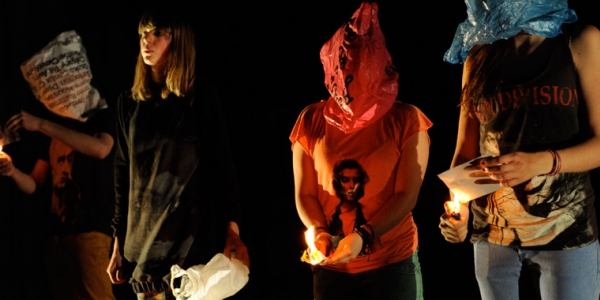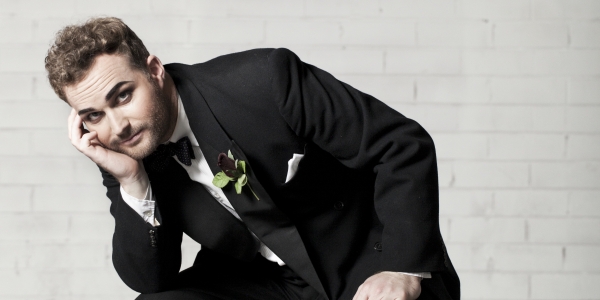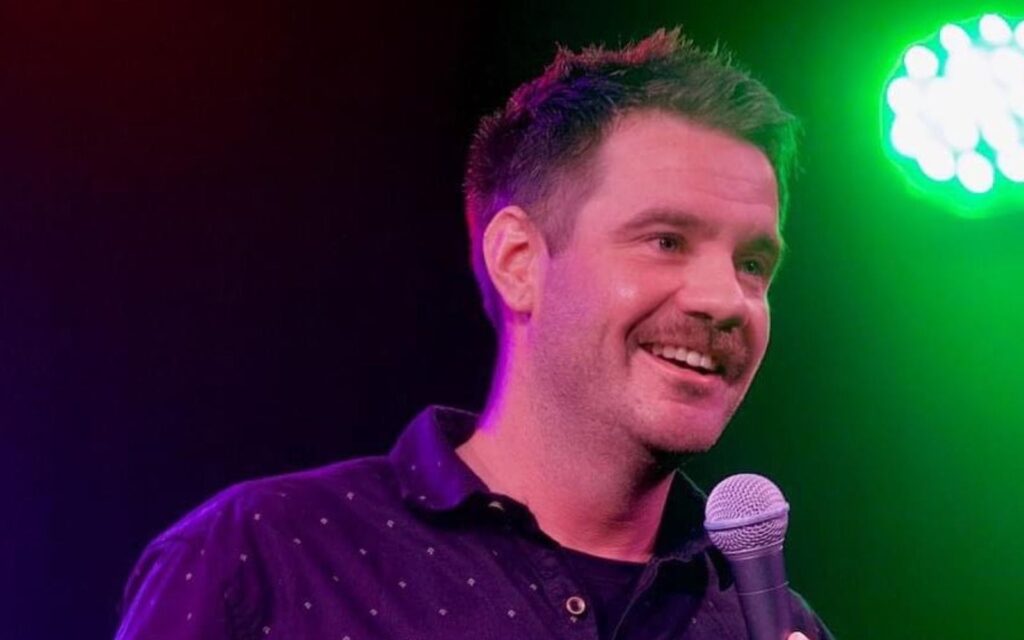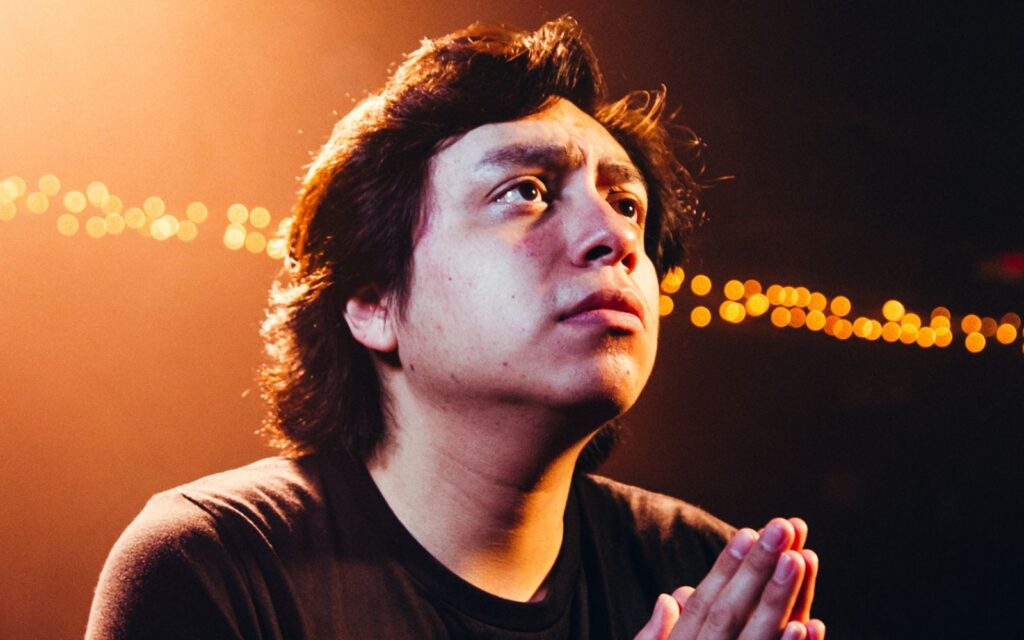“The most amazing thing about teenagers for me is that they are not part of society yet in a way,” ponders Devriendt. “They are of course – but they can still look at the system from a point of view that’s a little bit outside. That position is beautiful because they can still see the flaws in the system, they can see what’s wrong with it because they have an independent view.”
“When you’re a teenager you look at society in a different way. I always try to cherish that point of view,” says Devriendt. He hopes that Teenage Riot and its sister plays Once And For All and the final chapter in the trilogy, All That Is Wrong, preserve and protect that point of view, particularly for the many adults who may have lost it themselves. “I didn’t have beautiful teenage years,” claims Devriendt. “They were some of the hardest times of my life, but I would never want it to pass, that point of view. I’d never want to lose that.”
But why a trilogy? “It’s never the intention ‘oh this will become part of a trilogy’,” states Devriendt. “The trilogy aspect always comes later, you don’t start trying to do that, but I like the idea. It is a coming of age trilogy, but I’ve always looked at them separately. Like the Godfather parts one, two and three – they follow each other but they can be looked at separately and in totality. The first part is all about discovering something; the second part a reaction to that. For Teenage Riot that is about the anger teenagers have and the loss they have at becoming an adult. The last part of the trilogy is about coming full circle.”
Contained primarily in a large cube, the teenaged actors in Teenage Riot appear on a projection fed from a live camera inside the cube. Most of the cast have grown up with the company. “One girl was only 12 when we first did Once And For All,” explains Devriendt. “She’s 18 now.” The director and his cast promise raging music, anger, anxiety, humour, and exploration of themes of responsibility, oppression, isolation, and sexuality. The material comes directly from the performers, controlled only by the cube and a guiding hand from Devriendt. “There’s no point making a play about teenagers if it’s just saying what I want them to say,” he asserts. “That’s not what it’s about.”
Reviewers around the globe have claimed Teenage Riot has tempted them “to call social services”, enthused about the play’s destructive and nihilistic energy, and labeled it uncomfortable viewing. Reactions have been mixed around the globe. “We’ve performed all over,” says Devriendt. “And I don’t want to generalize, but I have felt for instance in Belgium, Scandinavia, Italy, they’ve really responded to the voices of the teenager, whereas in Britain for example there was this tendency to be shocked and think ‘they’re not allowed to say that’. They didn’t seem to believe in the kids, they didn’t accept it so much, they were resisting it. I’m very curious how it’s going to relate to the audiences in Australia.”
“You have questions when you’re a teenager and as you grow up you may or may not find the answers to those questions,” muses Devriendt. “I remember my teacher saying when I was around 12 that you can critique everything and you don’t have to have an alternative, that’s the beauty of being young. I loved that. I loved that state of mind. Not every individual thinks that of course. It always feels a little odd how certain societies view the right of teenagers to challenge the norm.”
The third part of the trilogy, All That Is Wrong, is also showing at the festival. Written and performed by 18-year-old Anna Jakoba Ryckewaert and directed by Devriendt, the play has been described as somewhat of a call to arms from one young person slowly realising what it truly means to grow up. Where Teenage Riot is full of hormonal frenzy and anarchy, the tone of All That Is Wrong is calmer. Anna has moved through the looking glass, and is now an adult in a brave new world, resigning herself to what lies ahead.
BY JOSH FERGEUS







